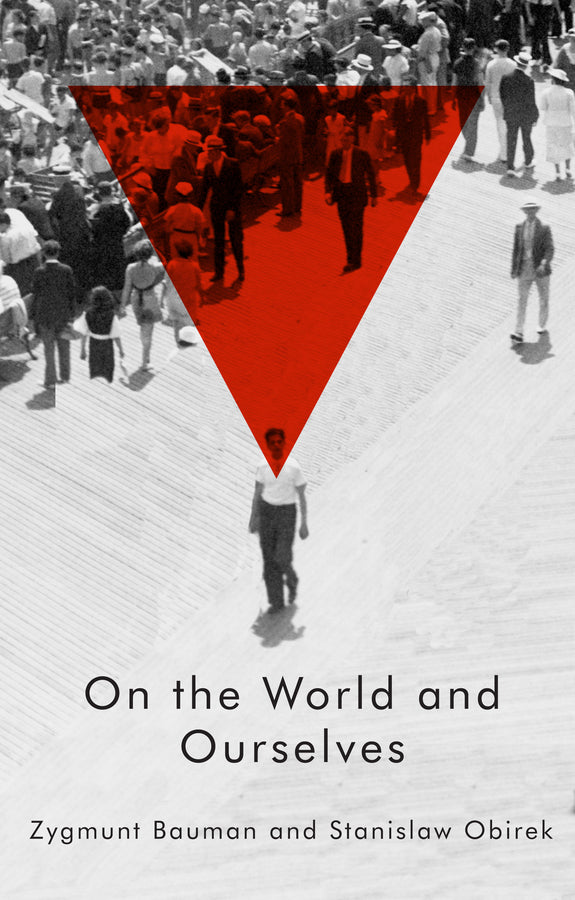Description
Discover a profound exploration of morality and choice with 'Unde Malum' by Zygmunt Bauman and Stanislaw Obirek. This thought-provoking book delves into the age-old question: where does evil come from? Throughout history, the concepts of good and evil have intertwined with the essence of human choice, freedom, and responsibility. As we navigate through a fragmented society that often places consumerism above empathy, the authors challenge readers to confront their own moral dilemmas and the weight of their decisions. This essential reading, published by John Wiley & Sons in 2015, spans 180 pages of insightful conversations that reflect on human dignity, the quest for recognition, and the imperative of mutual respect in today's world. Whether you're a student of philosophy, a seeker of truth, or simply curious about the moral fabric of society, 'Unde Malum' offers invaluable perspectives on the complexities of the human condition. Order now and engage with timeless questions that resonate through today’s individualized society. Note: Shipping for this item is free. Please allow up to 6 weeks for delivery. Once your order is placed, it cannot be cancelled. Condition: BRAND NEW. ISBN: 9780745687124.
Note: Shipping for this item is free. Please allow up to 6 weeks for delivery. Once your order is placed, it cannot be cancelled.
Condition: BRAND NEW
ISBN: 9780745687124
Year: 2015
Publisher: John Wiley & Sons (UK)
Pages: 180
Description:
Unde malum from where does evil come? That is the question that has plagued humankind ever since Eve, seduced by the serpent, tempted Adam to taste the forbidden fruit of the tree of knowledge of good and evil. Throughout history the awareness of good and evil has always been linked to the awareness of choice and to the freedom and responsibility to choose this is what makes us human. But the responsibility to choose is a burden that weighs heavily on our shoulders, and the temptation to hand this over to someone else be they a demagogue or a scientist who claims to trace everything back to our genes is a tempting illusion, like the paradise in which humans have at last been relieved of the moral responsibility for their actions. In the second series of their conversations Zygmunt Bauman and Stanislaw Obirek reflect on the life challenges confronted by the denizens of the fragmented, individualized society of consumers and the form taken in such a society by the fundamental aspects of the human condition - such as human responsibility for the choice between good and evil, self-formation and self-assertion, the need for recognition or the call to empathy, mutual respect, human dignity and tolerance.
Note: Shipping for this item is free. Please allow up to 6 weeks for delivery. Once your order is placed, it cannot be cancelled.
Condition: BRAND NEW
ISBN: 9780745687124
Year: 2015
Publisher: John Wiley & Sons (UK)
Pages: 180
Description:
Unde malum from where does evil come? That is the question that has plagued humankind ever since Eve, seduced by the serpent, tempted Adam to taste the forbidden fruit of the tree of knowledge of good and evil. Throughout history the awareness of good and evil has always been linked to the awareness of choice and to the freedom and responsibility to choose this is what makes us human. But the responsibility to choose is a burden that weighs heavily on our shoulders, and the temptation to hand this over to someone else be they a demagogue or a scientist who claims to trace everything back to our genes is a tempting illusion, like the paradise in which humans have at last been relieved of the moral responsibility for their actions. In the second series of their conversations Zygmunt Bauman and Stanislaw Obirek reflect on the life challenges confronted by the denizens of the fragmented, individualized society of consumers and the form taken in such a society by the fundamental aspects of the human condition - such as human responsibility for the choice between good and evil, self-formation and self-assertion, the need for recognition or the call to empathy, mutual respect, human dignity and tolerance.

